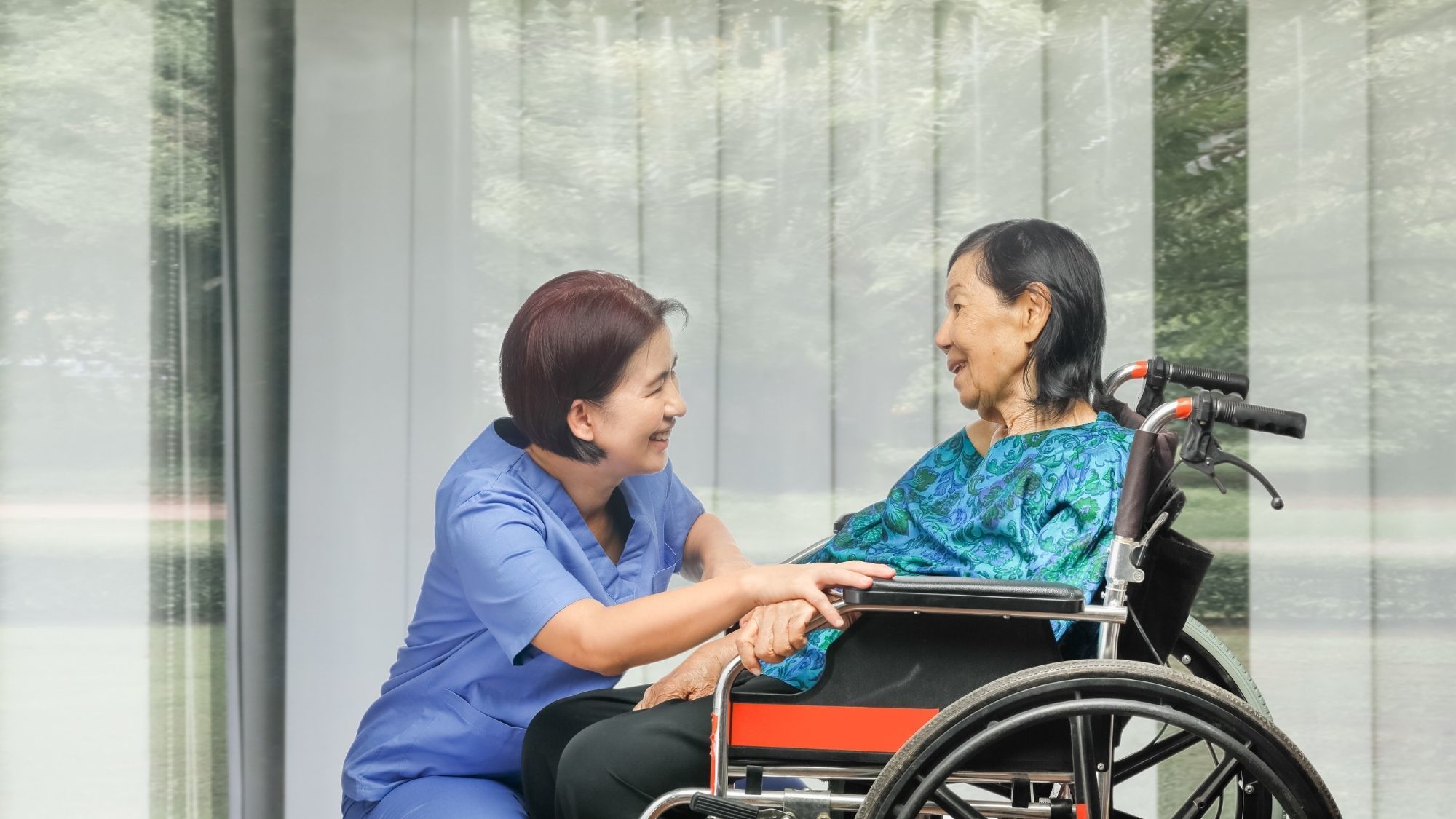USC Social Work researchers create app for reducing Chinese caregiver burden

Many Chinese immigrant caregivers endure the fatigue and overwork known by caregivers everywhere. But they struggle with added burdens—language barriers, self-neglecting behavior, and social isolation—that heighten risks to their physical and mental health. That’s why USC researchers recruited Mandarin-speaking immigrant caregivers to co-design and pilot-test a mobile application as part of a self-care training program in Los Angeles County. This “Care Me Too” app study was made possible by a pilot funding award from SC CTSI’s research development group.
“We may think we know what smartphone app features would be helpful for these caregivers and how to deliver self-care training to them,” said Iris Chi, DSW, MSW, Professor of Social Work and Gerontology at the USC. “But caregivers themselves are the ones who would use and benefit from the app, so they need to be involved in its design.”
The research team developed the app’s culturally appropriate Body-Mind-Spirit (BMS) holistic health curriculum. The BMS model is rooted in Eastern philosophies of Taoism and Buddhism, focusing on harmony between individuals and community, mind and body, and humans and nature. It also adopts relevant knowledge from traditional Chinese medicine.
“Many Asian people are accustomed to this thinking framework, so it can be easier for them to carry out many of its self-care ideas,” said Chi.
Twenty-two Chinese immigrant caregivers (average age 60.5) participated in the study. Caregivers tested and trained on the app and curriculum for one week in the lab followed by one week at home doing the same. Researchers subsequently interviewed participants in-person and followed up by phone, asking about the app’s usability and acceptability.
Although study participants offered positive grades to the app, they provided many suggestions, including larger text sizes, more playful visual designs, simpler navigation methods, and audio-only versions of the curriculum.
“Caretakers are very busy with many tasks, so they prefer listening to the curriculum as they work instead of always reading it on the smartphone,” said Shinyi Wu, PhD, MS, Associate Professor of Social Work and Industrial & Systems Engineering at USC.
Participants recommended that users receive printed certificates for completion of the curriculum. They also called for brighter and more varied colors in app design, reflecting popular choices in Asian culture. “These recommendations may seem very minor, but they could influence the effectiveness and acceptance of the app and curriculum,” said Chi.
The scientists have applied for a grant to the National Institute on Aging, which would allow them to develop a randomized controlled trial to test the app’s efficacy and potential behavioral change among participants.
“It’s very difficult to receive National Institutes of Health grants without the kind of preliminary work that we did with the SC CTSI grant,” said Wu. “When I received the pilot grant award, I was overjoyed, because it allowed us to develop a foundation for the next step. Without that opportunity, we would not have any chance to apply for this grant from NIH.”



